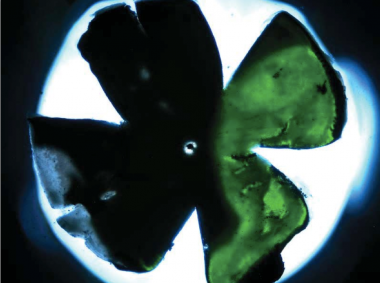
Humans and mice with specific mutations in the BBS1 gene show progressive death of photoreceptor cells. In research recently published in Investigative Ophthalmology and Visual Sciences, Wynn Institute scientists made a virus containing a normal version of the mouse Bbs1 gene and injected the virus under the retina of mutant mice. When compared to untreated mice and untreated eyes in the same mice, the treated mice showed modest improvement in electrical responses in the retina and also showed partial restoration of normal retinal biochemistry. Ongoing studies will be needed to optimize the dose and type of virus, but this work offers hope that gene therapy for Bardet-Biedl Syndrome may eventually be effective in human patients.
This report is in press in Investigative Ophthalmology and Visual Science.
